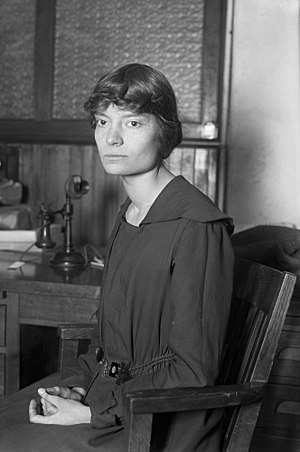
The Catholic Worker movement was founded by Dorothy Day and Peter Maurin during the Great Depression with the distribution of a newspaper for the common people. The movement originates from ideas of Christian anarchism and Catholic social justice, aiming to create a "new society within the shell of the old, a society in which it will be easier to be good."
Catholic Worker Movement[edit | edit source]
In order for there to be widespread implementation and knowledge of appropriate technology and related topics/practices, there needs to be a meaningful way to communicate the need for simple solutions and a culture that not only accepts but encourages sustainable living. One such culture is the Catholic Worker movement, which includes 185 intentional communities across the world. These are autonomous efforts of volunteers working as activists, farmers, and friends to those on the margins of society. Those involved take a vow of poverty and live simply in solidarity with the impoverished, and therefore practice creative use of resources on a daily business. Some grow all their own food and exist off the grid, while others re-distribute food in their communities to the hungry that would otherwise be thrown out.
The Catholic Worker philosophy includes voluntary poverty, the practice of hospitality, personal responsibility, intentional communal living, pacifism, sustainable living, farming, the works of mercy, human rights, and re-distribution of resources.
Peter Maurin calls for:
- A "green revolution," so that it is possible to rediscover the proper meaning of our labor and/or true bonds with the land; a distributist communitarianism, self-sufficient through farming, crafting and appropriate technology; a radically new society where people will rely on the fruits of their own toil and labor; associations of mutuality, and a sense of fairness to resolve conflicts.
Though joining such a community is not for everyone, the philosophies professed and practiced by The Catholic Worker Movement demonstrate a culture in which appropriate technology is created and used naturally due to deep beliefs about how the world should be.
External links[edit | edit source]
- Spiritual Communities: There's More to Them Than Meets the Third Eye, by Mariana Caplan (2000)
- Spiritual Community of Many FaithsThe Challenge Is to Love, by Stevie Abbott-Richards (2000)
- What You Should Know About Christian Communities, by Joe V. Peterson (2000)